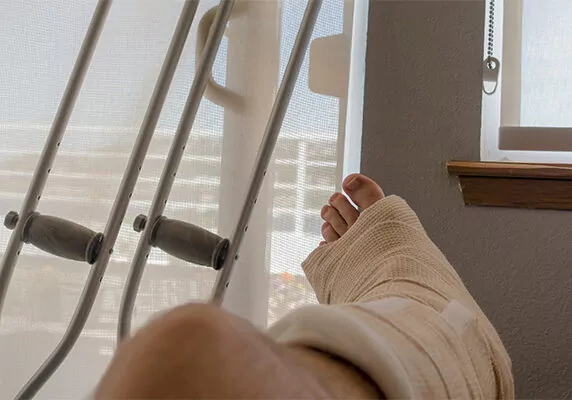Have you been bitten or scratched by a cat, and wondering if the owner is responsible for your medical bills, and the pain and suffering you have endured? The answer to that question is: maybe. It depends on the circumstances.
Perhaps you were walking up to your front door, and kneeled to pet a neighbor’s cat that had wandered by. Or you were taking a walk with your dog, and a cat panicked and attacked you.
The consequences of such an attack, if the wound becomes infected, are not only painful and dangerous, but costly—in terms of medical bills, lost pay, and suffering.
So, what recourse do you have? Are cat owners responsible for the actions of their pet? As it turns out, how the law regards cats is a little complicated.
Many states, including California, have strict liability laws which treat attacks by dogs much differently than they do attacks by cats and other animals.
The United States, as with just about every other country in the world, has long recognized that while dogs are beloved pets, they also pose a unique threat. Back in the 1990s, a study by the Centers for Disease Control (CDC) found that 4.7 million Americans were bitten by dogs in 1994, nearly 370,000 people were treated in hospitals for dog bite injuries in 2001, and nearly 2% of people treated for dog bites are hospitalized. Between 2005 and 2017, 433 people in the United States were killed in dog attacks, an average of 33 per year.
This is why California and many other states have specific, “strict liability” laws in place which apply specifically to dogs, and no other animals. Under such laws, dogs are understood to be inherently dangerous animals, and thus do not get a “free bite.” Regardless of whether the owner of a dog knows it to be dangerous or not prior to the attack, they are responsible, assuming that the victim was not otherwise at fault.
However, this is not the case with cats.
While cat bites are extremely common, and can result in serious, costly health consequences, liability laws regarding cat bites are not as strict as with dog bites.
In the United States, approximately 400,000 people. are bitten by cats each year. Roughly half of such bites result in infection, versus 10% for dog bites.
The medical consequences of an infected cat bite can be serious. Cat saliva is loaded with bacteria, the nastiest of which may be Pasteurella multocida, a bacteria that causes cellulitis. Cat bites often result in swollen, painful infections, which can spread to adjacent tissues or even cause blood poisoning. Cat bites are particularly dangerous to those who are elderly or otherwise immunocompromised. A 2014 study by the May Clinic found that about one-third of a group of people who sought medical attention for a cat bite to the hand were ultimately hospitalized for an average of just over 3 days.
Despite these potential medical consequences, no state in the U.S.—including California—has strict liability laws in place regarding cats. In effect, California has a “one free bite” rule, under which cat owners are not strictly liable for the behavior of a pet, until it has established a history of being a threat.
In many circumstances, successfully suing a cat’s owner for damages requires showing that the owner previously knew their cat was dangerous.
The practical implication of the implied one free bite rule is that to successfully sue a cat’s owner for the consequences of an injury caused by the cat, you will have to establish that the cat had a history of dangerous behavior. Such dangerous behaviors might include knowing that a cat had bitten someone else, or had attacked a dog without provocation.
Thus, it may be advisable for you to contact the owner’s neighbors to see if the cat had a reputation in the neighborhood for violence. Contacting local animal control might also yield a previous complaint against the owner.
Bear in mind that a cat’s owner might not be found to be fully responsible for the injuries caused by their cat. A court might find a victim contributed to their injuries through negligence—for instance, if the victim bent down to pet a cat, or ventured onto a neighbor’s property without permission.
As an aside, it should be noted that in the case of attacks by cats and other domestic animals on other animals, no law pertaining to animal attacks on humans apply. Cats, dogs, and other animals are defined as property, and thus the owner of an animal injured by another animal may only sue for compensation for property damage. However, this distinction may change in the future.
Animal attack cases are complex to litigate, and cat attack cases even more so. Working with an experienced personal injury attorney is critical to properly establishing the facts of what happened, collecting necessary evidence, and ultimately making a compelling legal argument.
If you have been injured by a cat bite or scratch, Penney & Associates may be able to help. We are reliable, highly experienced personal injury trial lawyers who have helped hundreds of people who have been the victims of animal attacks. Contact us today to schedule a free consultation.



